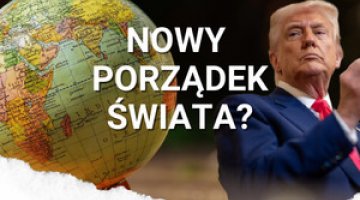Lithuania’s response to the European Commission guidance on Kaliningrad transit
On 13 July the European Commission (EC) presented new guidance on the transit of goods through EU territory to and from the Kaliningrad oblast. They oblige EC countries to resume the transit of sanctioned goods to this Russian exclave. Road and rail transport to its territory is primarily via Lithuania, which, observing EU law and following guidance from the EC in April, halted the transit of sanctioned Russian steel and iron products to the Kaliningrad oblast after 17 June. It followed this with cement, alcohol, timber and luxury goods after 10 July.
The European Commission allowed Russian entities to transport EU-restricted goods by rail, but only to meet demand in the Kaliningrad oblast itself. The EC did, however, uphold a ban on transporting these goods to and from the Kaliningrad oblast by road, as well as a ban on military transit and the transit of military technology and dual-use items, regardless of the mode of transport chosen. Member states were obliged to maintain checks on goods in transit between Russia and its exclave and to monitor whether they are being exported to the EU. According to the updated guidance, Lithuania and other EU countries will have to check whether transit volumes remain within the historical averages of the last three years, in particular reflecting the real demand for essential goods at the destination. Member states have also been obliged to monitor unusual flows or trade patterns which could give rise to circumvention of sanctions. EC spokesman Daniel Ferrie dismissed as untrue information circulated in the Russian media that the guidance is the result of negotiations and agreements with Moscow. In Lithuania, neither President Gitanas Nausėda, Prime Minister Ingrida Šimonytė nor Foreign Minister Gabrielius Landsbergis are commenting publicly on the EC’s decision.
Commentary
- Vilnius’s reserved reaction to the change in the EC’s position is meant to emphasise that Lithuania was not a party to the compromise, but accepts it as a decision of an EU body with the right to issue regulations. This stance taken by Vilnius is also intended to counter Russian attempts to divide Western countries, as demonstrated by the Lithuanian Foreign Ministry’s communiqué, which was its only official reaction after the EC’s guidance was announced. Its contents show that Vilnius accepts the EC’s decision, as the need to de-escalate tensions over transit to the Kaliningrad oblast by restoring transit is supported by Lithuania’s key foreign and security policy allies. However, Vilnius cannot ignore the positions and assessments of its strategic partners. In acting thus, it considers the US and Germany, which have deployed the most military equipment and troops in Lithuania, to be the main strategic partners. Both countries – Germany publicly through statements by Chancellor Olaf Scholz, and the United States through diplomatic channels – have advocated for de-escalation of the dispute over transit to Kaliningrad. Scholz argued that Lithuania’s interpretation of the EU sanctions was incorrect, as they were imposed to restrict international trade, not Russia’s internal trade. In the EC’s compromise settlement, the element most satisfactory to the Lithuanian government is that the EC did not set any precedent or exception in the treatment of EU member states, i.e. it did not refer its transit guidance exclusively to Lithuania and its territory, but created a regulation applicable to all EU member states.
- Some Lithuanian politicians from the conservative right and political commentators point out that the new guidance do not close the way for Lithuania to continue arguing at the EU institutions that there is a need for tighter and more severe restrictions against Russia in response to its attack on Ukraine. Vilnius’s good relations with the EC also favour the promotion of this policy. The Lithuanian government themselves emphasise that they are in constant contact with the EC. Lithuania continues to call on EU states and other countries which recognise Russia as a threat to tighten sanctions – both those in force in economic relations and personal sanctions on people actively promoting the Kremlin’s aggressive policies – until it ends the war in Ukraine and withdraws from the occupied territories. Lithuania can be expected to make full use of the right granted by the EC to exercise strict control over transit to and from the region. In this way, it will seek to weaken the argument, which even Moscow is using, that the transatlantic community is softening its stance on sanctions. Lithuania’s implementation of effective oversight of whether Russia uses the restored transit to conduct international trade, however, could lead to a new wave of escalating tensions in relations between the two countries.
- The issue of the dispute with Moscow, triggered by Vilnius through the implementation of EU restrictions on Kaliningrad transit, also has implications for domestic politics in Lithuania. The country’s opposition, including notably former Prime Minister Saulius Skvernelis, leader of the newly formed Union of Democrats ‘For Lithuania’, has been touting the successive failures of Lithuanian diplomacy under Landsbergis’s leadership. Among these failures he includes the inability to defend its position on the Kaliningrad transit issue (Skvernelis himself uses arguments identical to those used by Chancellor Scholz), the creation of scandals over Vilnius’s failure to implement US sanctions on export of Belarusian potassium through Lithuania, and the creation of a dispute with China over Taiwan’s representation in Lithuania. Skvernelis is arguing that Landsbergis’s foreign policy is having a negative effect on Lithuania’s political and economic external relations, and thus Vilnius remains isolated on the international stage. The opposition’s position is also supported by commentators, who emphasise the mistake that Lithuanian diplomacy made on the transit issue in consulting only the European Commission and skipping negotiations with its main partners – the US and Germany, and also Poland.





